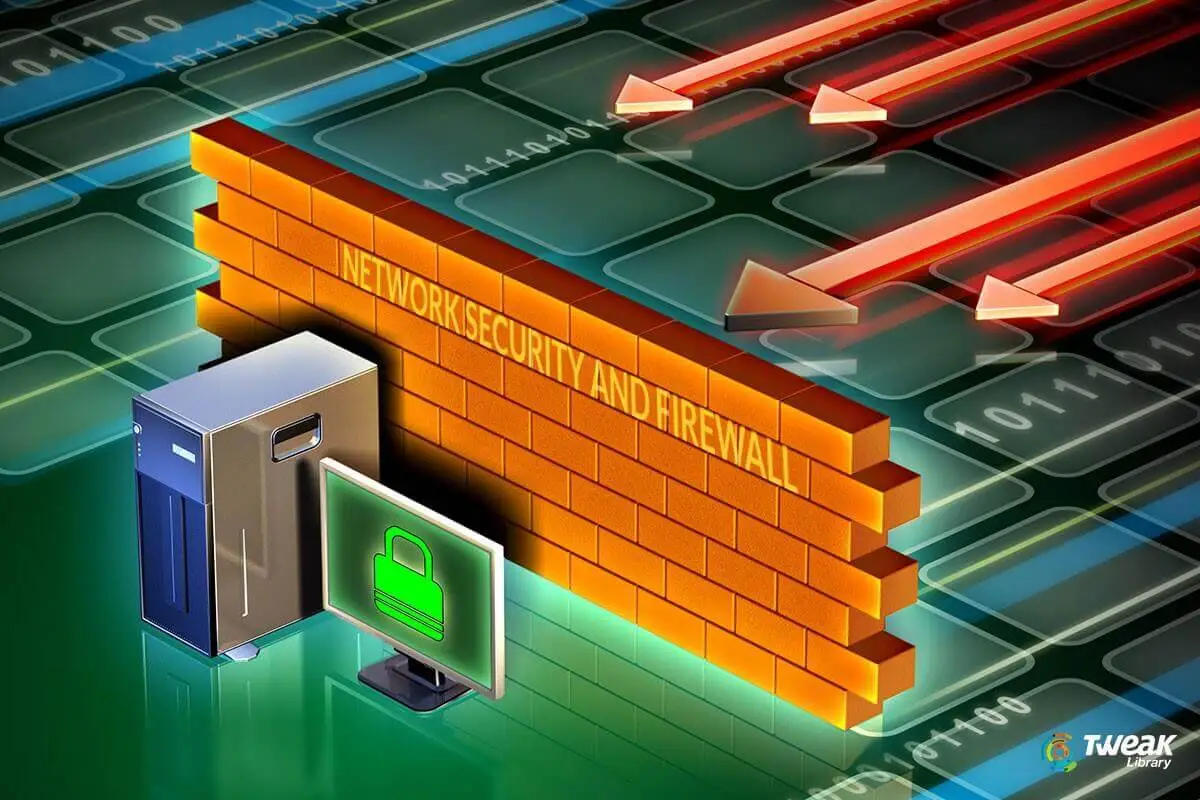Top Reasons Why Businesses Need Network Firewall Security

Network security has become integral to any business strategy in today’s rapidly evolving digital landscape. Companies rely heavily on computer networks to store sensitive information, conduct transactions, and communicate with clients and partners. However, with the increasing number of cyber threats, businesses need to take proactive measures to protect their valuable data. One of the essential tools for ensuring network security is a firewall. A network firewall serves as a security barrier, monitoring and controlling incoming and outgoing traffic to prevent unauthorized access and potential threats.
This article will explore why businesses need network firewall security to safeguard their networks and data from cyber-attacks. The Security Assessment and Testing process involves comprehensive top reasons why businesses need network firewall security.
Table of Contents
6 Top Reasons Why Businesses Need Network Firewall Security
1. Protects Your Company From Hackers
Hackers increasingly use social engineering attacks to access business systems and data. By leveraging employees’ trust, they can trick unsuspecting individuals into providing privileged information and sensitive data. This is one of the most common methods hackers use to gain access to sensitive business information and data, and it can be incredibly dangerous if not prevented. Therefore, it is essential for businesses to be aware of the potential risks of social engineering attacks and to ensure that their employees are properly trained to recognize and avoid them.
High-quality cybersecurity training is the most effective way to prevent malicious cyber attacks before they start. However, firewalls can also help to a large extent. Firewalls can alert you to suspicious incoming traffic and block any malicious traffic before it can cause any damage. Implementing a firewall is a great way to secure your systems and networks and train your staff to understand the risks associated with online security.
2. Protect Your Business from Malicious Code
Strong firewalls provide an extra layer of security by inspecting the traffic that enters and leaves your network. They scan for viruses, worms, spam, and other potentially malicious traffic and block any malicious attempts to access your system. Additionally, they log any intrusion attempts, policy violations, and other suspicious activities. With the help of the logs, you can quickly identify unauthorized access attempts and take appropriate action. This way, you can ensure your network is secure and free from malicious threats.
Many of these robust firewalls provide additional protection by maintaining a list of known malicious and suitable applications. They can be configured to block malicious applications while allowing practical applications to run on your system. Furthermore, they can also alert you when a malicious application attempts to run, allowing you to prevent potential damage.
3. Used to Provide VPN services
Encryption technology has become essential to virtual private networks (VPNs) for securely sending and receiving data between two parties. VPNs ensure that your communications remain private and secure, even when traveling across complex networks, by encrypting the data before it leaves your computer and then decrypting it when it reaches its destination. This means no one else can access the data, guaranteeing complete privacy and security.
Firewalls not only protect from threats but can also be used to provide secure VPN services. For example, a company can use a firewall to restrict access to the Internet for specific computers and then configure a tunnel to communicate securely over the Internet. This way, the company can ensure that only particular machines have access to the Internet and that data is securely transmitted.
4. Help Secure Your Network When Using Remote Employees
Businesses today rely heavily on remote employees to get work done away from a central office location. However, this presents an additional challenge for organizations when it comes to protecting their networks. Once an employee is outside your ISP’s network, it can be difficult to secure the connection and protect against potential threats. Investing in the right IT security solutions is essential to ensure that your network remains secure and that any confidential data or other sensitive information remains protected. With the right network security solutions, you can ensure that your remote employees are working securely and that your business is protected from potential risks.
However, when a firewall is present, the connection between your server and remote employees is further secured. It acts as a shield, blocking unwanted users and ensuring that the data being shared by your business and remote employees remains private and secure. With a firewall, you can rest assured that your remote employees’ data is safe and secure.
5. Protects Your Data In the Cloud
Today, many businesses are making the smart financial move to host all of their data in the cloud rather than on a server at their location. But, with this convenience comes risk: when your data is on a server you don’t control, the security of your information becomes reliant on the IT resources you use for cloud storage. It’s essential to choose a reliable provider you can trust with your most sensitive data. In addition, keeping data onsite may create a vulnerability that could have been avoided. Ultimately, deciding which method of data storage is best for your business requires a thorough understanding of the pros and cons of each.
A firewall policy can significantly reduce the risk of malicious code passing through your network. By requiring all data to be checked and rechecked, a firewall policy can provide a secure environment for remote workers and stop malicious code from entering the network. This provides an added layer of protection from potential cyber threats and helps keep your network safe and secure.
6. Use a Firewall to Meter Bandwidth
A firewall can do more than just provide security; it can also be used to meter and limit the network bandwidth flowing through it. By doing so, you can ensure that high-priority business traffic has the bandwidth it needs to run efficiently, while non-business activities like streaming videos, music, and images are limited to prevent network bottlenecking.
This ensures that critical business traffic is never compromised, allowing your business to run at its peak performance. With this, you can be sure that your network is always operating at its optimal speed and efficiency.
Conclusion
Network firewall security is a crucial component of any business’s cybersecurity strategy. With the rise of cyber threats and data breaches, companies must proactively protect their networks, data, and customers. A network firewall acts as the first line of defense, preventing unauthorized access and detecting malicious activities before they cause harm. By implementing robust firewall security, businesses can also ensure compliance with industry standards and regulations, build trust with their customers, and minimize the risk of financial and reputational damage. In today’s digital age, where cyber threats are becoming more sophisticated and frequent, investing in network firewall security should be a top priority for every business.
Post courtesy: Cyber74, Cybersecurity Solutions Provide






